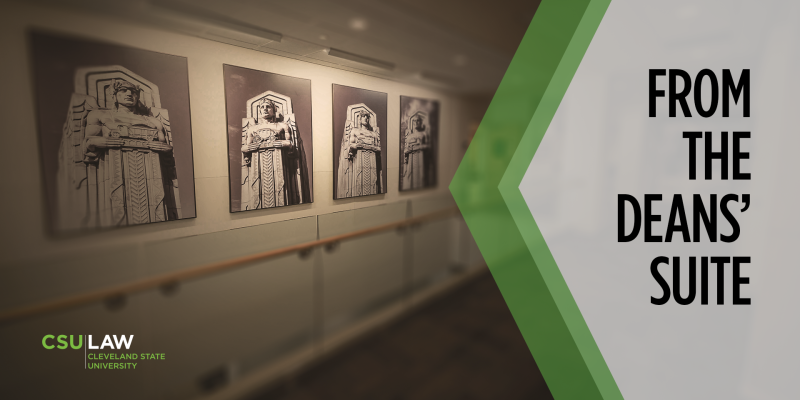
“There’s never a wrong time to stand up for what’s right”
That was the inspiring theme of American Bar Association President Bill Bay’s talk last week at the Cleveland City Club. At once a truism and a battle cry, President Bay was referring to the ABA’s response to the disturbing rise in attacks on the legal profession and personal threats to judges and their families. Threats against judges, once rare and unthinkable, have become alarmingly commonplace. U.S. District Court Judge Dan Polster joined President Bay decrying these unprecedented attacks and emphasized that judges need all of us to help defend against them:
We speak through our opinions. We need others, what I call “Champions of Justice,” to speak for us.
As Judge Polster reminded us in his contribution to the Cleveland Metropolitan Bar Association’s special Rule of Law edition, cases are assigned to each judge by lottery. And judges decide each case on its specific facts, applying relevant precedent. They call “balls and strikes,” in Supreme Court Chief Justice Roberts’ now-famous analogy.
CSU|Law is proud to count hundreds of judges among our distinguished alumni and many more, like Judge Polster, as close friends who support us and our students. They are not only graduates; they are family. To attack them is to attack us, and what we stand for as an institution.
And so we are answering Judge Polster’s call. CSU|Law leaders, alumni and faculty contributed over half of the pieces in that same groundbreaking CMBA Rule of Law edition: former Deans Lee Fisher and Steve Steinglass; Judges Michael Donnelly, Anne Walton Keller, John Russo and Brendan Sheehan; Leaders-in-Residence Carter Strang and Richard Pogue; alumni Nick DiCello, Rosalina Fini, Susan Jacobsen, Ange Mastandrea, Barbara Roman, and Brad Wolfe; and Professor David Forte. Their essays are acts of courage defending our courts and constitutional democracy.
Every incoming student at CSU|Law receives a copy of Just Mercy by Bryan Stevenson—a powerful memoir about the role lawyers can play in confronting injustice. Inside the book, we include a personal message explaining that Stevenson’s story is a call to embrace our motto and our mission: Learn Law. Live Justice.
Just Mercy reminds us that, no matter our chosen path, every lawyer has a role to play in protecting the vulnerable, defending the rule of law, and standing up when it matters. As you read it, we hope you’ll reflect not only on the kind of lawyer you want to become, but also on the kind of person you want to be in this work.
Stevenson's story is less about the courtroom and more about conscience. And that’s the point: the rule of law depends not on statutes and cases, but on people—judges, lawyers, citizens—who choose, in ways small and large, to stand up for what’s right.
Warmly,
Brian
